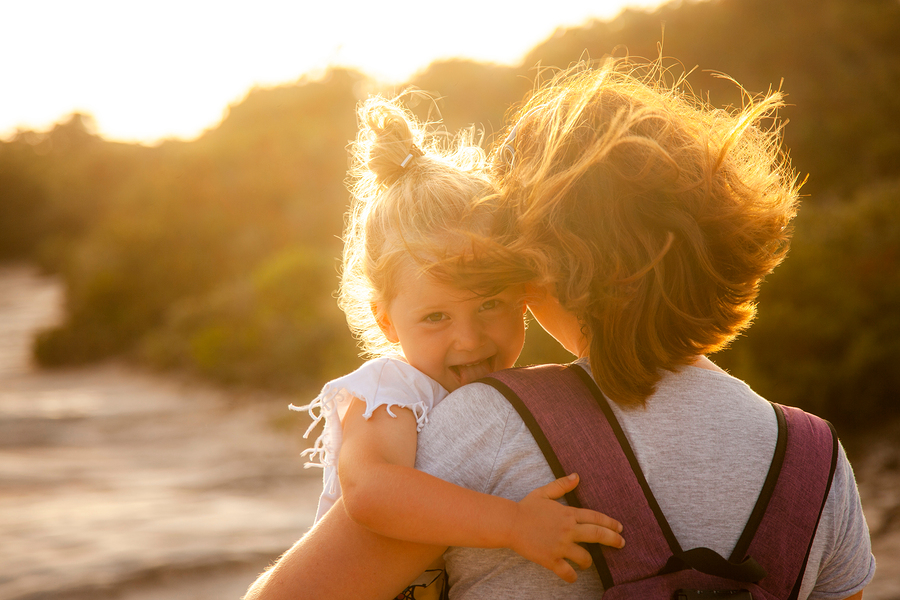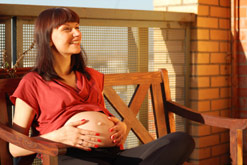How to forgive, right out of the mouths of babes.
One night before bed, mama/blogger Mary Katherine Backstrom got in a knock-down, drag-out fight with her daughter Holland, as reported recently on her Facebook page. The altercation involved hotly contested stuffed animals and a lack of interest in bedtime preparation. (1)
There were harsh words, there were tears, and exhausted at last, they both retreated to their corners. As mom was walking out, she turned around to see her wild child standing on her bed, hands on hips, with one more thing to say. Holland knows what forgiveness means, mom.
“It means you were wrong, and I’m tired of being mad, and now I’m going to sleep and my heart won’t have a tummy ache.”
RELATED STORY:
Aw! I can’t help but feel we should all be more like Holland when the need to forgive arises. Wild hair, tear-stained face, fierce hands on hips, vibrating with life. Thrumming with forgiveness. Alive and well, capable of a kind of centeredness that many of us don’t know because we are too mired in our own programming and our own stories.
Forgiveness Is Good For Your Health
“I release us both of this because I need rest.” This is how to forgive.
How profound, simple, generous, and right on that is. On some level, to not forgive is to appoint yourself judge, jury, and executioner. You’re the judge and the jury of the person who wronged you, sure. But, unfortunately, the one who pays the price is also you, if you can’t forgive.
The way Holland worded her message of forgiveness is interesting. She wanted to let it go so her “heart won’t have a tummy ache”, and that really gets at the root of what forgiveness is about. They say that “holding resentment is like drinking poison and waiting for the other person to die”, and Holland’s very intuitive statement touches on that. It showcases this centeredness that young kids are often so capable of… the ability to suss when something is “off”, and take immediate steps to rectify it.
RELATED STORY:
It doesn’t matter how it started. The end result is that she was in emotional pain and wished to be released of it. Right now. So, poof. Done.
And what happened? Cuddles and snuggles. The release of the hurt created room for love. Conversely, if she’d let her mom walk out the door, she’d have held on to that hurt. She’d have ingested the poison. There’d be no release, and thus no room for healing.
Adulting And Forgiving
Volumes have been written on forgiveness, partly because it’s such a compelling emotion. It’s really hard to put away our own feelings on something and just move forward. But kids excel at living in the moment, and perhaps that’s why they can more easily find a space of forgiveness. Because they don’t want to feel terrible, they want to feel good, and if you’re cool with what you did, then that’s on you.
RELATED STORY:
What a simple and beautiful way to live, and an attainable goal for ourselves as adults. Many of the reasons we can’t and won’t forgive someone have to do with our own stories, and our own conditioning. Forgiveness shows weakness, for example. But really there is a huge amount of strength in vulnerability. By going into our hearts and feeling for a tummy ache, we can start to unravel the tightly-knotted emotions. We can parse what’s happened, take responsibility for our own actions, and apply forgiveness liberally to everything. Poof.
She single-handedly diffused that situation with nothing more than an “I release us both, and I’m out”, and that’s powerful. Yes, we should all definitely be more like Holland.
“Forgiveness is the fragrance that the violet sheds on the heel that has crushed it.” – Attributed to Mark Twain
*Article originally appeared at Healthy Holistic Living. Reprinted with permission.












